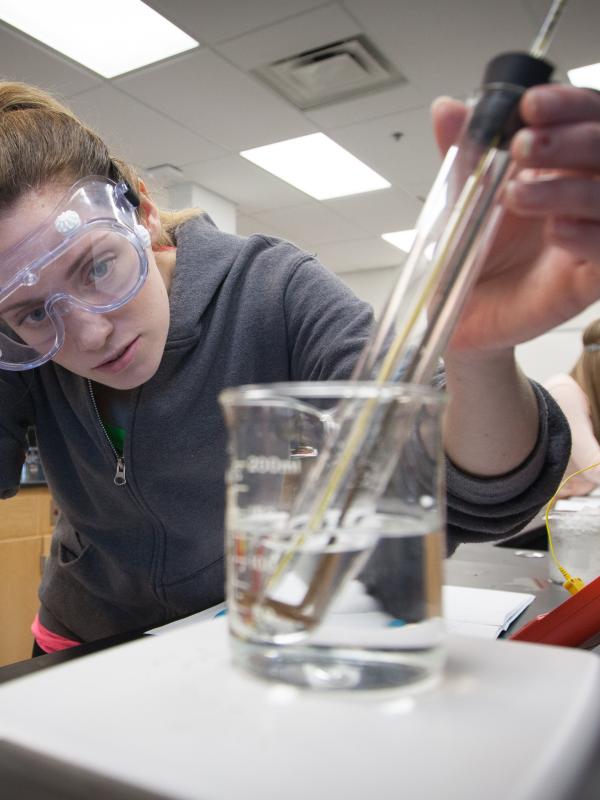Department of Chemistry and Biochemistry
The Science of Everything
So many of the most promising innovations and ideas of the 21st Century depend on the work of applied biologist, chemical engineers, and chemists and biochemists. At Kettering, that’s our specialty: preparing scientists to change the world. With small classes, state-of-the-art labs, co-op and experiential learning opportunities — no one does Chemistry and Biochemistry like Kettering.
Explore Our Programs
Get In The Lab
Biology
The Applied Biology program boasts a state-of-the-art teaching lab suite featuring a General/Microbiology Lab, Molecular/Cellular Biology Lab, Advanced Topics Lab, student and faculty research space, a Tissue Culture facility, and cutting-edge instrumentation.
- First year Applied Biology students look at human tissues and microorganisms, dissect organisms as well as learn basic safety and lab skills such as pipetting, solution preparation and the operation of basic laboratory equipment.
- In their second year, they are introduced to some of the most widely used experimental procedures in the biotechnological field including sterile technique, nucleic acid isolation, manipulation and amplification, electrophoretic techniques, tissue culture, various biological assays and protein isolation techniques.
- Juniors and Seniors further their knowledge and expertise in Molecular Biology, Cellular Biology, Microbiology, Genetics and other advanced topics.
Biochemistry & Chemistry
You’ll learn the fundamentals of chemical properties and interactions—and get a chance to perform experiments with instrumentation not seen by most undergraduates. You’ll gain hands-on experience in areas such as reaction energetics, organic synthesis, chromatography, spectroscopy and chemical thermodynamics.
- In our Life Science Labs (like General Biology, Human Biology, Genetics, Molecular & Cellular Biology, Anatomy & Physiology), you’ll study the surface structure and elemental composition of everything from insects to complex computer chips with our Environmental Scanning Electron Microscope.
- You will learn biological techniques such as DNA mutagenesis, protein expression and purification, and microscopy where students look at human tissues & microorganisms under the microscope, dissect organisms, study polymerically preserved human cadavers and perform simulated surgeries.
Chemical Engineering
In our labs, you'll get a chance to perform experiments with instrumentation not seen by most undergraduates.
- You’ll get hands-on experience with a 400 MHz Nuclear Magnetic Resonance Spectrometer in your sophomore year as you unravel molecular structures of organic component and organometallic complexes.
- You will delve deeper into chemical engineering through hands-on lab experiments in absorption, adsorption, filtration, distillation, reaction engineering, heat exchange and recovery, process controls, transport phenomena, viscosity/rheology and chemisorption.
- Your senior capstone experience will utilize all of your undergrad knowledge and will focus on plant design.
